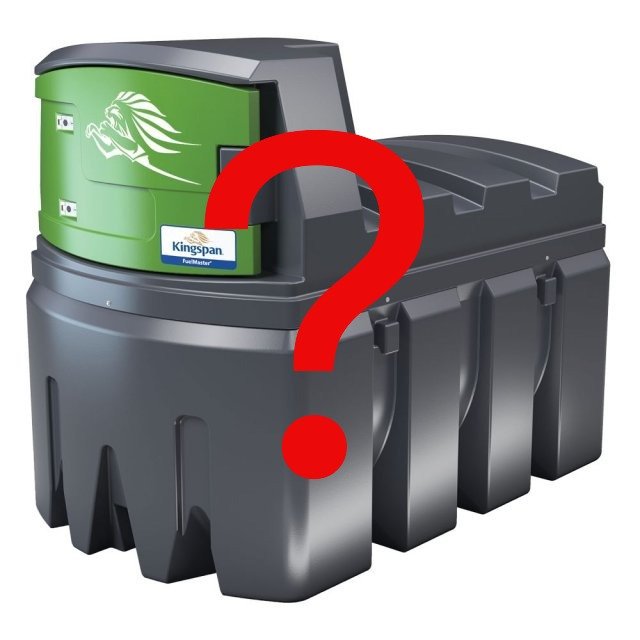Owning a diesel tank. What do I need to know ?
Owning a diesel dispensing tank involves several responsibilities and considerations, both regulatory and operational. Here’s an overview of the key aspects of what you need to know
1. Compliance
- Environmental Regulations: Diesel tanks must adhere to local and environmental standards, such as proper spill containment measures, secondary containment, and monitoring systems to prevent leaks and contamination of groundwater or soil.
- Tank Inspection & Maintenance: Regular inspections (typically approx. every 2 - 5 years) by certified professionals are necessary to ensure the tank is in good condition. This includes checking for corrosion, leaks, and the functionality of safety features and pump and changing of filters
- Permits & Licensing: Depending on the location and the size of the tank, owning a diesel dispensing tank may require special permits. These permits ensure compliance with safety and environmental standards.
- Health & Safety Compliance: The tank and dispensing equipment must meet H & S regulations to protect employees or customers during fuel handling.
2. Tank Selection and Installation
- Tank Size and Capacity: Tanks come in various sizes, typically ranging from 500 to 100,000 litres. The size of the tank will depend on your fuel needs and how frequently fuel is dispensed.
- Installation: Professional installation is usually required for both the tank and the dispensing system. This includes proper grounding, piping, and ensuring the tank is placed in an approved location with adequate ventilation and safety measures.
- Type of Tank: Tanks are generally made of steel or plastic. Plastic tanks are resistant to corrosion and maintenance free and may be preferred in certain environments.
3. Operational Considerations
- Fuel Management: Diesel dispensing tanks require ongoing fuel inventory management and controlled dispensing to authorised users including regular checks to ensure the tank is full, monitoring fuel consumption, and planning deliveries.
- Dispensing Equipment: The dispensing system typically includes a pump, hose, nozzle, flow meter and filtration system. These components need to be maintained to ensure smooth operation.
- Fuel Quality: Ensuring the diesel remains of high quality is essential. This may involve using fuel additives, maintaining proper tank temperature, and avoiding water contamination.
4. Cost Considerations
- Initial Setup Costs: The cost to purchase and install a diesel dispensing tank can range from several thousand to tens of thousands of pounds, depending on tank size, installation complexity, and necessary safety equipment.
- Ongoing Maintenance & Inspections: Regular maintenance, including annual inspections, repairs, and monitoring systems if required, can add up. Additionally, you would need to budget for fuel delivery costs.
- Insurance: An appropriate insurance coverage for the tank and the dispensing system in case of accidents or spills.
5. Maintenance
- Tank & Dispensing System Maintenance: Routine checks on tank levels, pumps, nozzles, and filters are needed. This includes ensuring there are no leaks, cleaning filters, and checking gauges.
- Cleaning & Water Separation: Periodically removing water from the tank and ensuring there is no algae growth or sediment buildup in the diesel is crucial to maintaining fuel quality.
- Emergency Spill Containment & Response: Having a spill response plan and the appropriate materials (like absorbent pads, spill kits, etc.) is essential for minimizing the environmental impact in the event of a spill.
6. Risk Management
- Fire Hazards: Although diesel is not like petrol proper fire prevention measures, including fire extinguishers and safe fuelling practices, are necessary.
- Spill Prevention and Containment: Spill containment features like overfill protection, secondary containment walls, and automatic shut-off systems are important to mitigate potential risks. These are often included in the tank but always worth checking to see if this is an option
- Monitoring Systems: Many modern tanks can be equipped with monitoring systems that track fuel levels, detect leaks, and ensure compliance with environmental standards.
In summary, owning a diesel dispensing tank requires investment in both the tank itself and the associated infrastructure. Ongoing maintenance, regulatory compliance, and safety precautions are critical to ensuring smooth and safe operation. Proper planning and monitoring are necessary to manage costs, prevent environmental hazards, and ensure fuel quality
-
Posted by Rob Wales
19th December 2024

 Login
Login